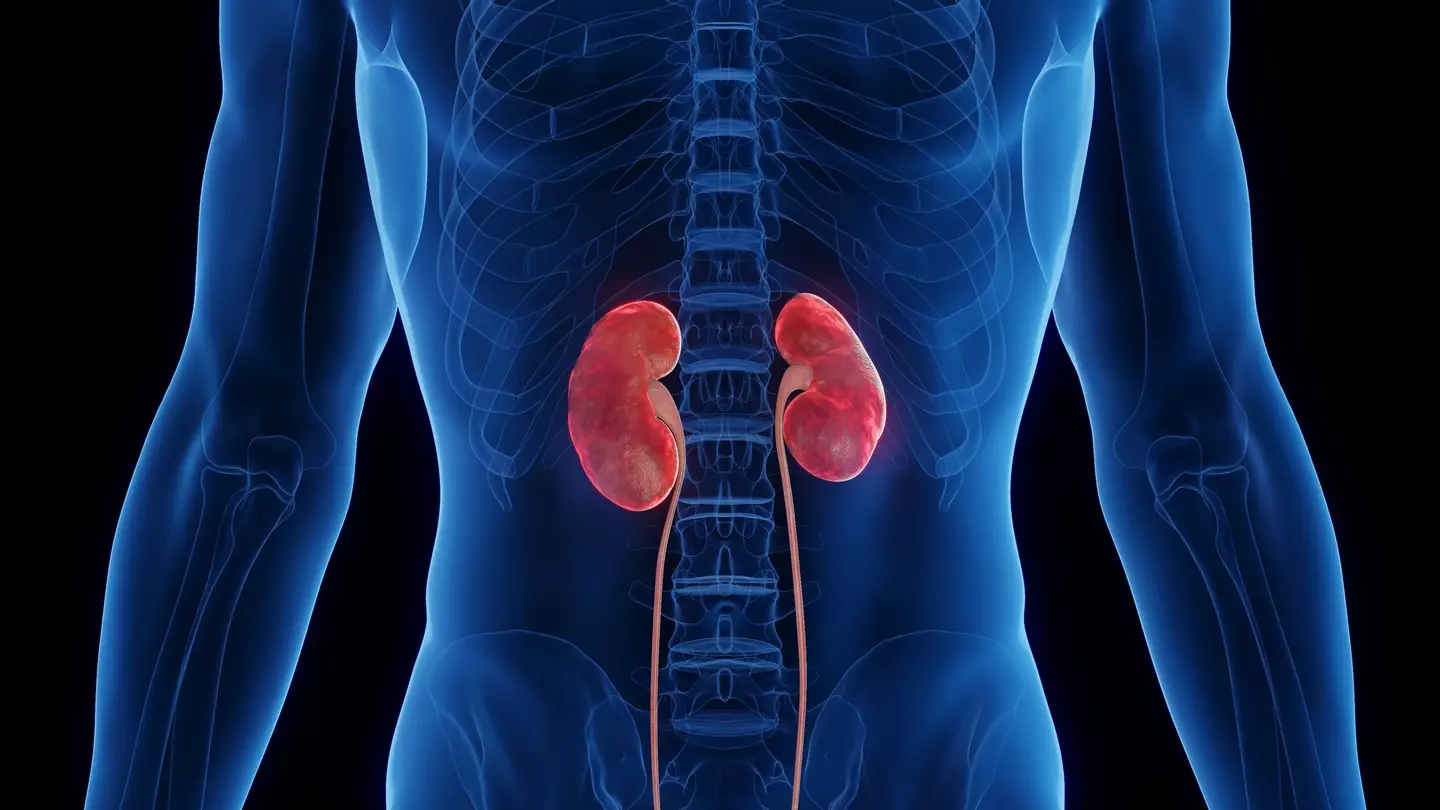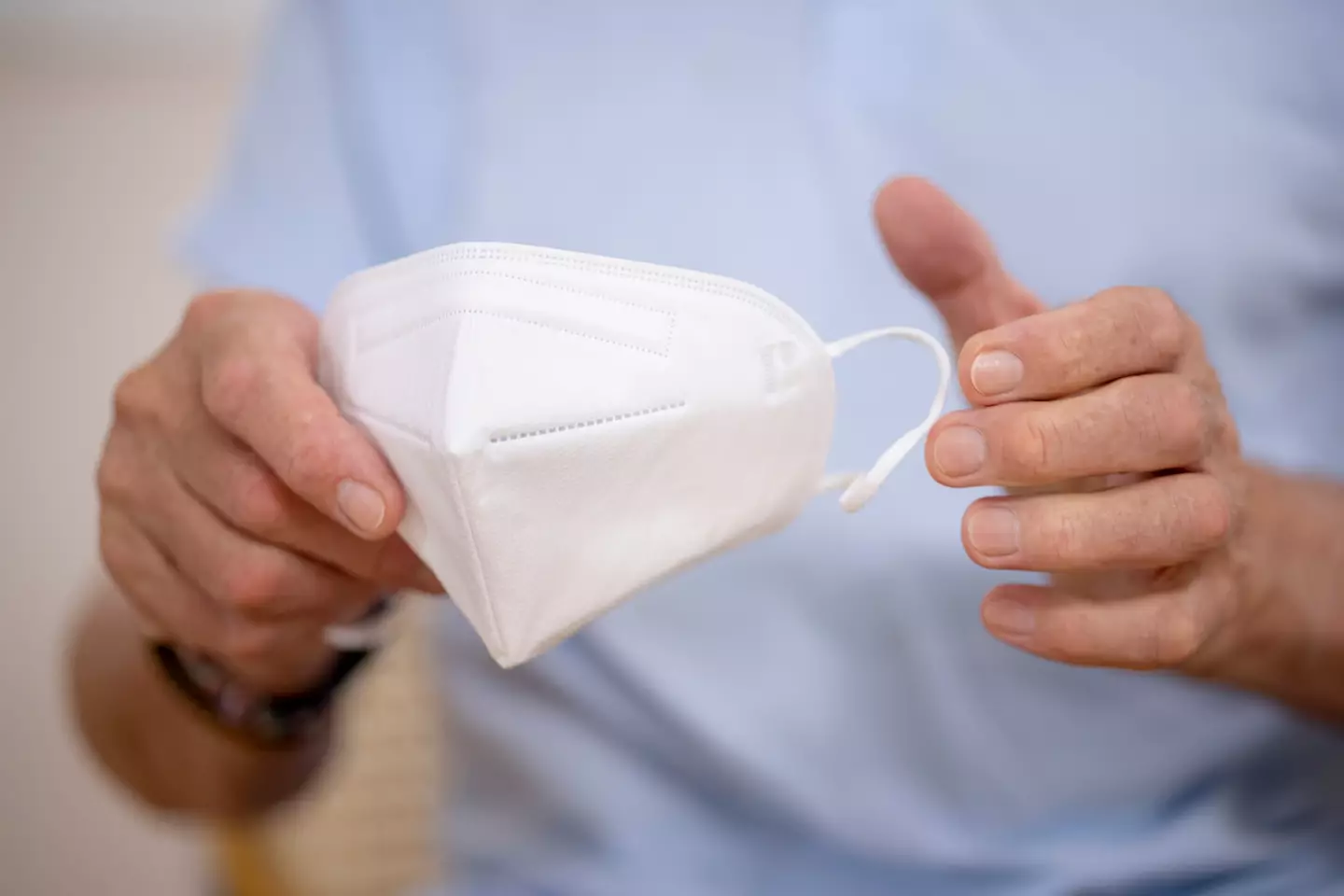
Scientists have discovered a new way to diagnose a common kidney condition which affects some 35 million Americans.
Known as Chronic Kidney Disease (CKD), it occurs over time when the organs don't function as well as they should, meaning they can't filter waste and extra fluid from the blood effectively.
If left untreated, it can cause kidney failure, which can be fatal.
The CDC writes that the health condition impacts some 35 million Americans but, worryingly, many more could have the disease without even realizing it.
Advert
Currently, it's diagnosed by urine and blood tests - but that could all be about to change.

Scientists have adapted face masks - similar to the ones people worn during the Coronavirus pandemic - into diagnostic tools that could help identify CKD.
A study published in ACS Sensors describes a new type of mask that includes a breath sensor designed to detect specific molecules linked to the disease.
People with CKD exhale higher levels of certain chemicals - including ammonia, ethanol, propanol and acetone - meaning these levels can be detected by breath alone.
Researchers embedded a chemical sensor inside a standard surgical face mask and testing it on 100 participants.
Around half had a previous diagnosis of CKD and the other half did not have it.

The smart mask was able to distinguish between the two groups with high accuracy: 84 percent true positives and 88 percent true negatives.
The sensor’s data also showed promise for determining the stage of CKD. There are five stages, with the most severe being kidney failure.
Coauthors of the study, Sergio Bernardini and Annalisa Noce, said: “The implementation of this technology is expected to enhance the management of CKD patients by facilitating the timely identification of changes in disease progression.”
What are the symptoms of kidney disease?
According to the Cleveland Clinic, the early stages of Chronic Kidney Disease don't always give us warning signs. But as the condition worsens, you may begin to notice some symptoms.
These can affect your toilet habits, including the need to pee more often and foamy or bubbly urine.

It can also cause a loss of appetite, trouble sleeping and tiredness or weakness.
You may notice swelling of your hands, feet and ankles as well as muscle cramps.
It can affect our face and skin too, causing puffy eyes and dry, itchy skin and the darkening of your skin.
Other symptoms include nausea, vomiting, high blood pressure and shortness of breath.
If you have any concerns, contact your doctor as soon as possible.
Topics: Health